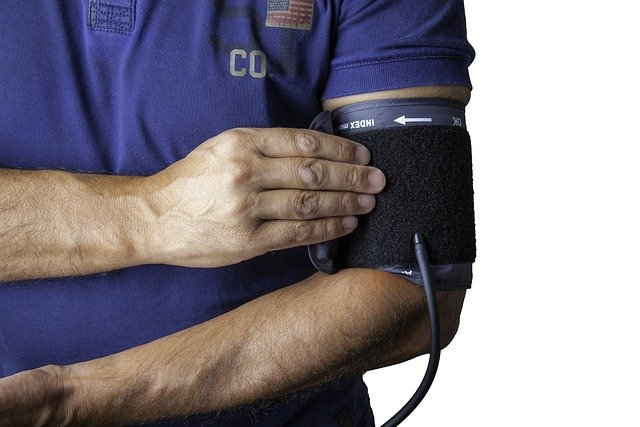Early Signs of Heart Failure Adults Should Know 2026
Heart failure affects a significant number of adults in the United States and often develops gradually with subtle symptoms. Recognizing early signs can lead to timely medical assessment and appropriate management. This article outlines common early indicators that may suggest the onset of heart failure.

Understanding Heart Failure
Heart failure is a chronic medical condition where the heart is unable to pump blood effectively to meet the body’s needs. It does not mean the heart has stopped working entirely but indicates reduced cardiac function. Heart failure can involve the left side, right side, or both sides of the heart. This condition commonly arises from long-term health issues such as hypertension (high blood pressure), coronary artery disease, diabetes, or previous heart attacks. The heart’s decreased efficiency can result in fluid buildup and impaired oxygen delivery to organs.
Early identification of heart failure symptoms is essential because intervention at initial stages may help slow progression and improve quality of life.
Common Early Signs and Symptoms
Unusual Fatigue
Many individuals with early heart failure report feeling unusually tired or exhausted during routine activities such as walking, climbing stairs, or completing household tasks. This fatigue occurs because the heart’s diminished pumping capacity reduces oxygen circulation to muscles and organs. If a person notices persistent tiredness without other obvious causes, it may indicate early cardiac dysfunction.
Shortness of Breath (Dyspnea)
Breathlessness is a commonly reported symptom and can appear at rest or during physical exertion. In heart failure, fluid accumulation in the lungs (pulmonary congestion) can cause difficulty breathing. Some individuals experience orthopnea, which is shortness of breath when lying flat. They may need to sleep with extra pillows or in a reclined position to ease breathing.
Swelling (Edema) in Lower Extremities
Swelling in the ankles, feet, or legs may occur due to fluid retention caused by heart failure. This swelling often worsens throughout the day and can fluctuate with activity and rest. Mild edema in the lower limbs during the early stages may be one of the initial observable signs.
Rapid or Irregular Heartbeat
Palpitations or an accelerated heart rate can occur when the heart compensates for reduced pumping ability. Arrhythmias (irregular heart rhythms) are common in heart failure and may manifest as pounding, fluttering, or skipped beats.
Persistent Cough or Wheezing
A chronic cough or wheezing can result from fluid buildup in the lungs. This symptom may be more noticeable when lying down or at night and can sometimes be mistaken for respiratory infections or allergies.
Increased Need to Urinate at Night (Nocturia)
Heart failure can cause fluid to accumulate during the day in the lower body and then redistribute at night when lying down, leading to increased urine production. Frequent nighttime urination may be an early sign for some individuals.
Difficulty Concentrating or Decreased Alertness
Reduced cardiac output can decrease blood flow to the brain, potentially causing memory issues, confusion, or difficulty focusing especially in advanced stages, but milder cognitive effects may appear early.
Risk Factors for Heart Failure in the United States
Certain health and lifestyle factors prevalent in the U.S. population increase the risk of developing heart failure:
- Hypertension (High Blood Pressure): One of the leading causes.
- Coronary Artery Disease: Blocked or narrowed arteries restrict blood flow to the heart muscle.
- Diabetes: Increases risk of cardiac complications.
- Obesity: Associated with higher cardiovascular risk.
- Smoking: Damages blood vessels and contributes to heart disease.
- Chronic Kidney Disease: Often coexists with heart failure.
- History of Heart Attack: Can weaken heart muscle.
Understanding these factors helps identify individuals who may require closer monitoring.
Diagnostic Procedures
When heart failure is suspected based on symptoms, healthcare providers in the U.S. typically follow a series of diagnostic steps:
- Medical History and Physical Exam: Review of symptoms and risk factors, physical signs like swelling or lung sounds.
- Blood Tests: Including B-type natriuretic peptide (BNP) or N-terminal pro-BNP (NT-proBNP) to detect heart stress.
- Electrocardiogram (ECG): Records electrical activity and detects arrhythmias.
- Chest X-ray: Examines heart size and signs of fluid in lungs.
- Echocardiogram: Ultrasound of the heart to assess function and structure.
- Stress Testing: Evaluates heart performance during exertion.
- Cardiac MRI or CT: Advanced imaging when needed.
Early and accurate diagnosis supports personalized management.
Managing Early-Stage Heart Failure
Management in early heart failure focuses on controlling symptoms, slowing disease progression, and addressing underlying causes. This often involves:
- Lifestyle Modifications: Including a low-sodium diet, regular physical activity within tolerance, weight management, and smoking cessation.
- Medication: Depending on severity and cause, medications such as ACE inhibitors, beta-blockers, diuretics, or other drugs may be prescribed by healthcare providers.
- Monitoring: Regular follow-up appointments to assess heart function and symptoms.
Typical Costs in United States (2026)
When addressing heart failure diagnosis and management, typical price ranges in the U.S. can vary depending on healthcare setting and insurance coverage:
- Basic option: Routine doctor visit for symptom evaluation - typically $100 to $300 per visit without insurance.
- Standard option: Common diagnostic tests such as ECG and blood tests - approximately $200 to $1,000 each.
- Premium option: Advanced imaging (echocardiogram, cardiac MRI) or specialist consultation - costs can range from $1,000 to $3,000 or higher.
Medication costs vary widely depending on prescriptions and insurance plans. Hospitalizations for heart failure exacerbations can result in significantly higher expenses.
Conclusion
Heart failure remains a significant public health concern in the United States. Early recognition of symptoms such as unusual fatigue, shortness of breath, swelling, and palpitations may facilitate prompt evaluation. Understanding risk factors and diagnostic approaches helps individuals and healthcare providers manage heart failure effectively. Ongoing research continues to improve understanding and treatment practices.




